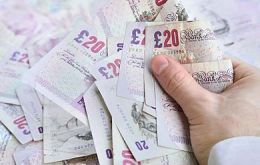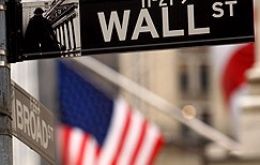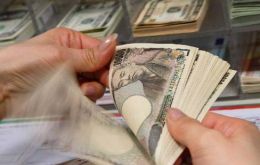MercoPress. South Atlantic News Agency
Economy
-
Tuesday, September 2nd 2008 - 21:00 UTC
Venezuelan oil will help South African gold production

South Africa and Venezuela sealed a major oil deal Tuesday during a visit by Venezuela's President Hugo Chavez, who touted it as an example of southern nations cooperating in a new strategic alliance.
-
Tuesday, September 2nd 2008 - 21:00 UTC
Pound at USD 1.785 and at record low against the Euro

The British pound has fallen to two-and-half-year low against the US dollar and record low against the Euro amid fears about the health of the UK economy.
-
Tuesday, September 2nd 2008 - 21:00 UTC
Sarkozy calls for more regulation in financial markets
French President Nicolas Sarkozy wants Europe to play a stronger role in international financial markets regulation to strengthen governance rules and boost confidence, his office said in a statement on Tuesday.
-
Tuesday, September 2nd 2008 - 21:00 UTC
Brazil curbs credit confirms tough line against inflation
Brazil's Finance minister Guido Mantega said on Tuesday the government will not lower interest rates as long as inflation threatens to come in higher than the established target. He added that the country's benchmark lending rate will continue to rise until the government is assured that its original 4.5% inflation target will be met.
-
Monday, September 1st 2008 - 21:00 UTC
New Orleans: Ghost town awaits Hurricane Gustav

Hurricane Gustav began to lash the southern Louisiana coastline early Monday as it moved closer to an expected midday landfall, according to the National Hurricane Center in Miami.
-
Monday, September 1st 2008 - 21:00 UTC
Wall Street back steps on the risks of an Argentine default

Wall Street investment banks downplayed the risks of an Argentine default even with lower soy prices, a slowing down of the economy and soaring inflation. The announcement from Morgan Stanley, UBS and Barclays Capital follows weeks of speculation that Argentina was technically on the verge of another financial disaster.
-
Monday, September 1st 2008 - 21:00 UTC
Corporate Argentina criticizes gov for double digit inflation

With August gone and inflation estimates for the month in the range of 1.6 to 2.2% corporate Argentina has joined the bandwagon and is warning about the impact of double digit prices for consumers, industry and unions trigger clauses.
-
Sunday, August 31st 2008 - 21:00 UTC
Darling backtracks on claim that economic crisis is worst for 60 years
Alistair Darling took to the airwaves to “clarify” his comments in a newspaper interview, saying that he was referring to global economic conditions rather than those in Britain.
-
Sunday, August 31st 2008 - 21:00 UTC
Chile Bank Voted Unanimously to Raise Rate to 7.75%

Chile's central bank policy makers voted unanimously to increase interest rates at their last meeting by half a percentage point for the third straight month.
-
Saturday, August 30th 2008 - 21:00 UTC
Japan unveils ambitious stimulus plan and tax breaks

The Japanese government unveiled on Friday a policy package worth about 107 billion US dollars in an effort to stimulate the country's faltering economy by easing the negative impact from rising energy and raw material costs.
